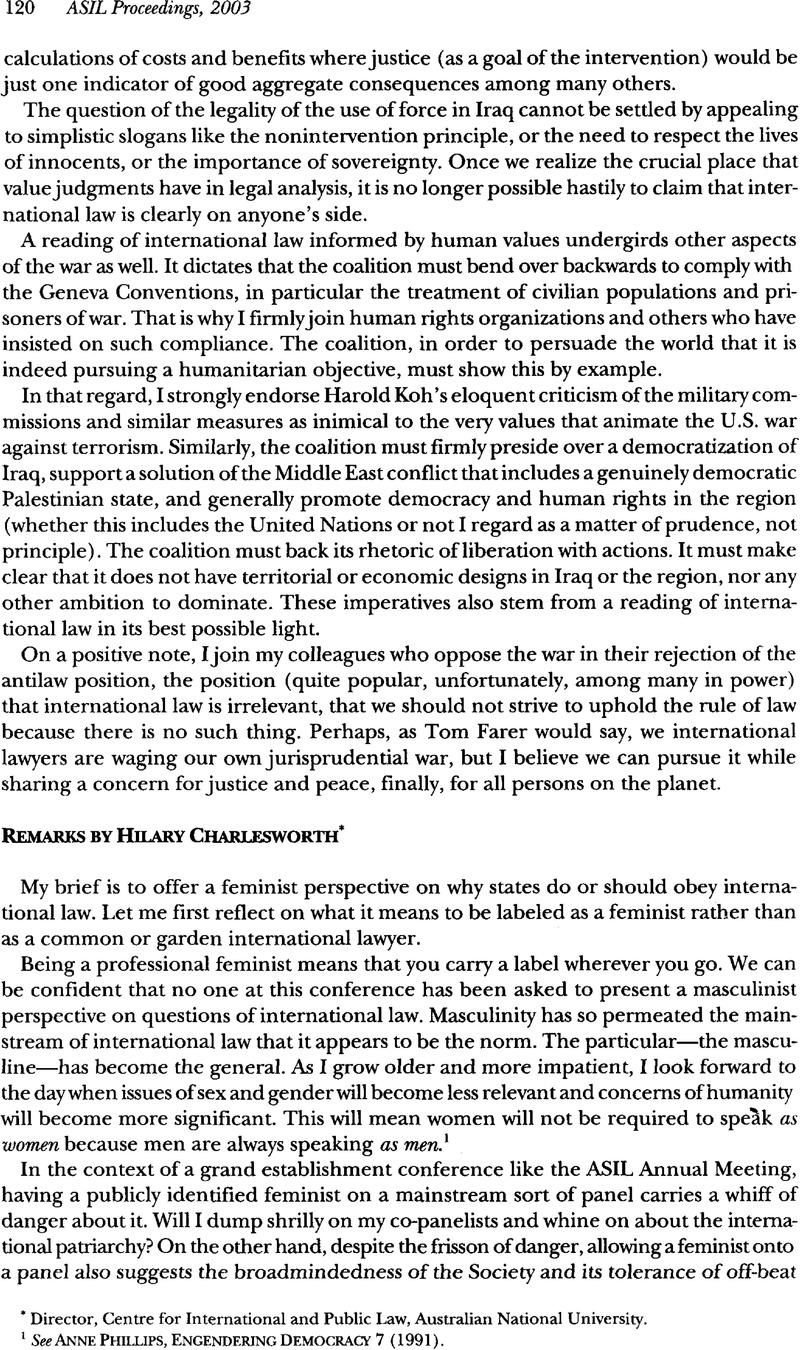No CrossRef data available.
Published online by Cambridge University Press: 28 February 2017

1 See Anne Phillips, Engendering Democracy 7 (1991).
2 See Réaume, Denise, What’s Distinctive About Feminist Analysis of Law?, 2 Legal Theory 265 (1996)CrossRefGoogle Scholar
3 Id. at 271.
4 See id.
5 See Munro, Vanessa E., On Power and Domination: Feminism and the Final Foucault, 2 Eur. J. Pol. Theory 79, 80 (2002)CrossRefGoogle Scholar.
6 1249 UNTS 13, adopted Dec. 18, 1979.
7 Rome Statute of the International Criminal Court, adopted July 17, 1998, UN Doc. A/CONF.183/9, art. 8.
8 Réaume, supra note 2, at 278.
9 See Abram Chayes & Antonia Handler Chayes, the New Sovereignty: Compliance with International Regulatory Agreements (1995).